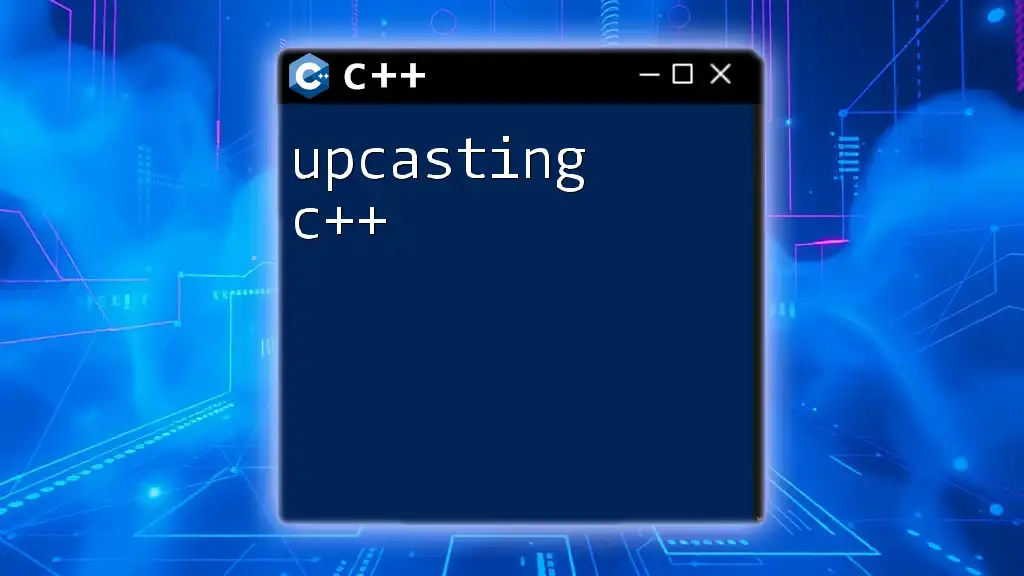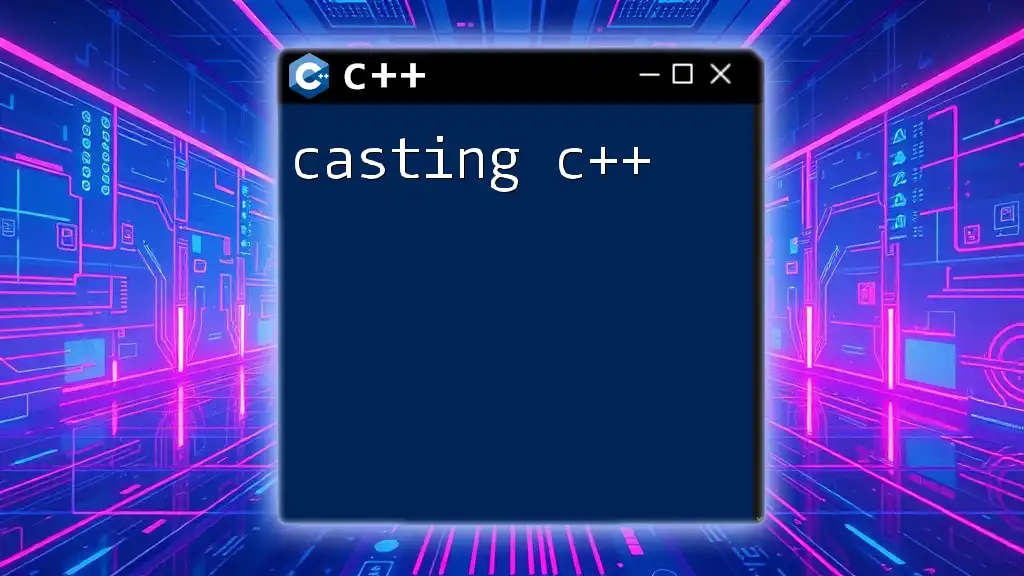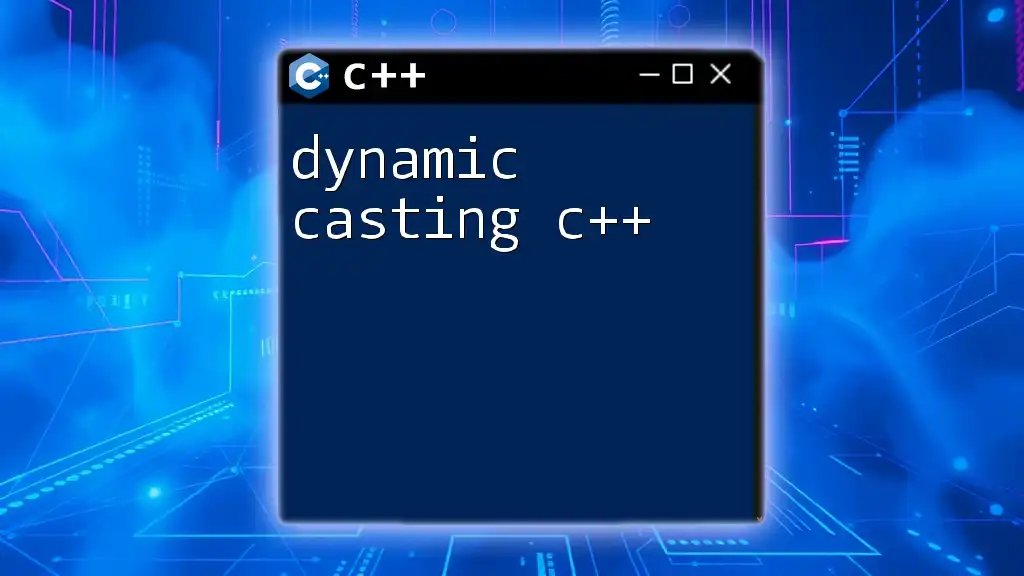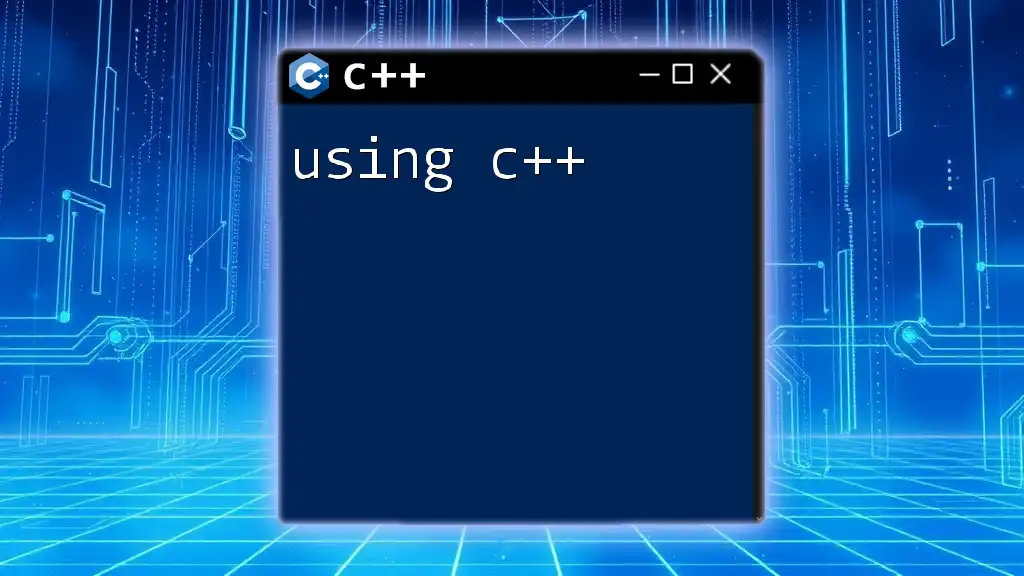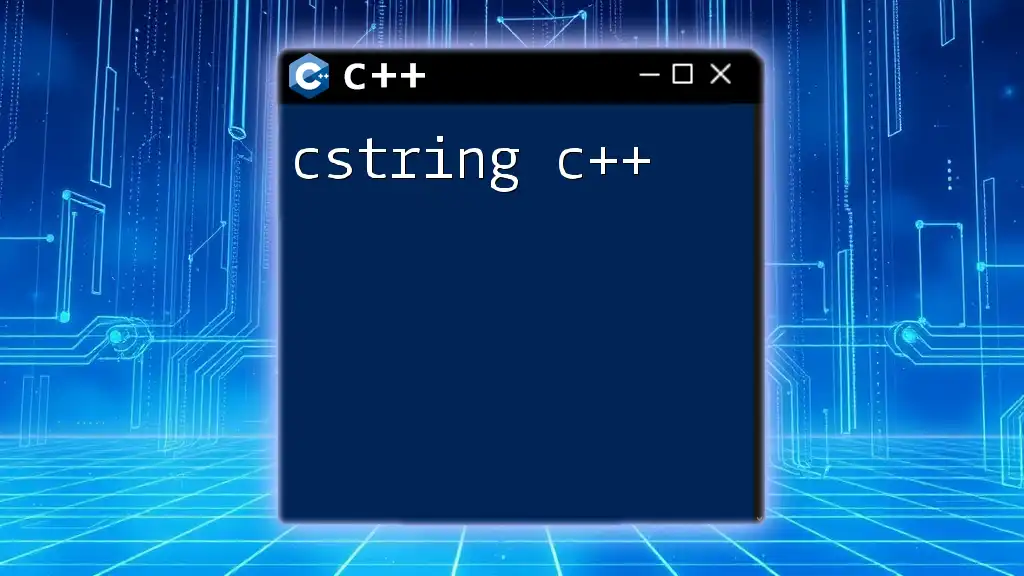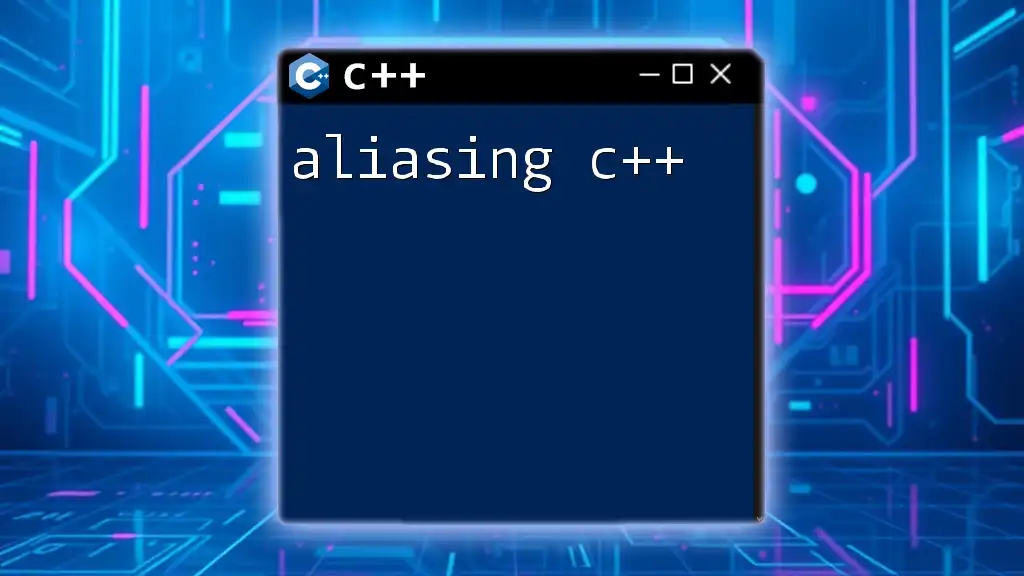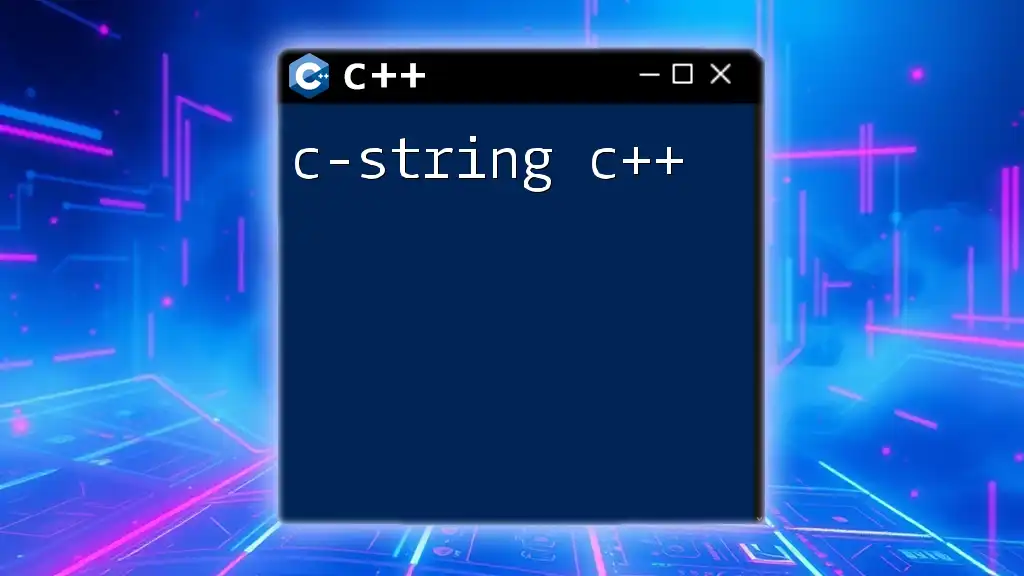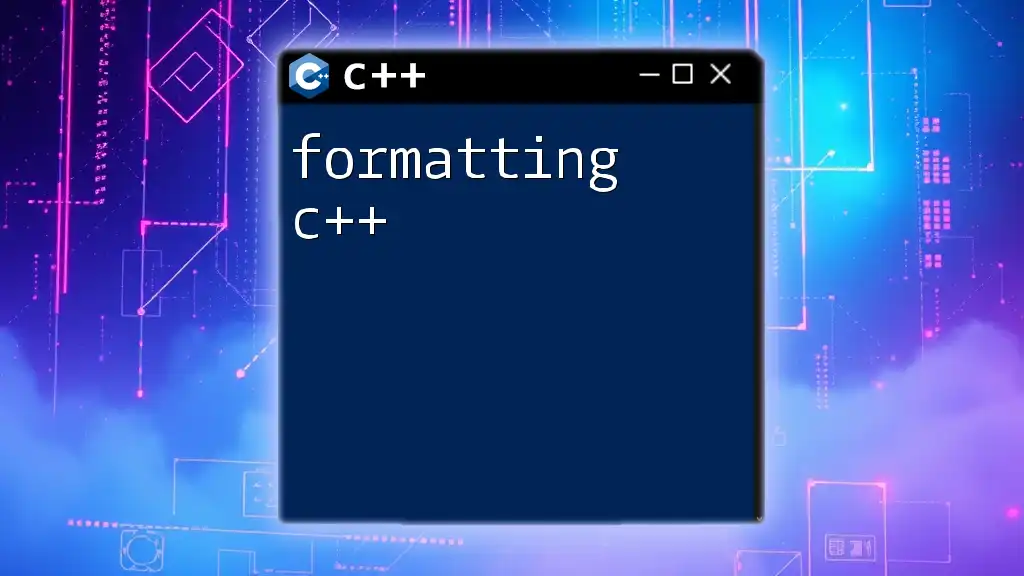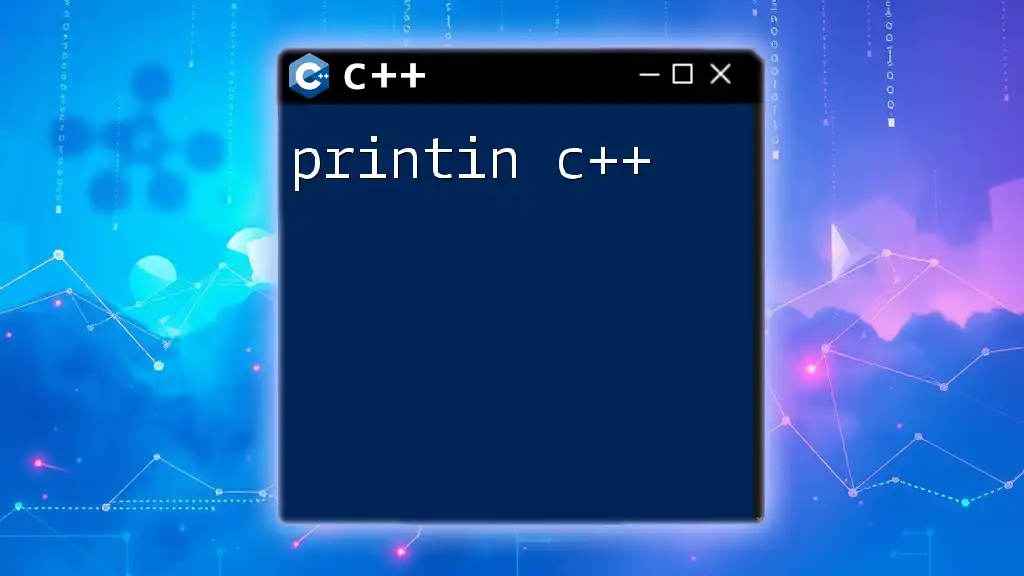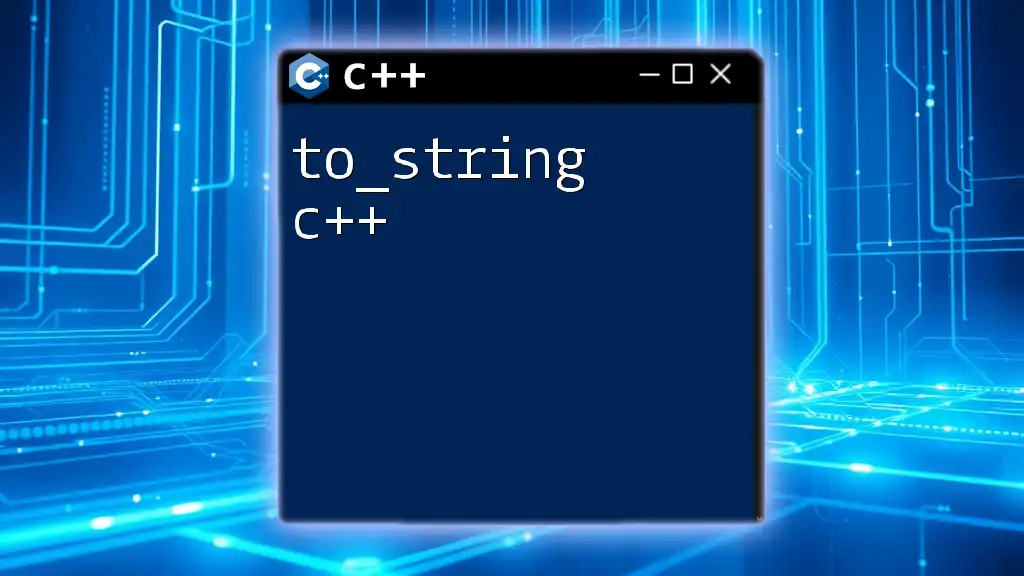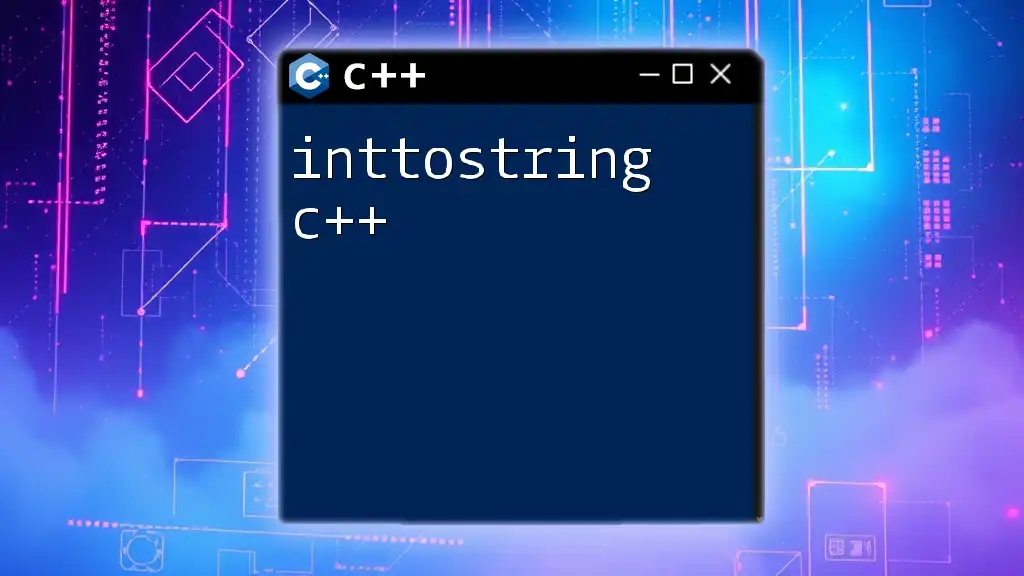Upcasting in C++ refers to the process of converting a derived class pointer or reference to a base class type, allowing for polymorphic behavior and access to the base class methods.
Here’s a simple code example demonstrating upcasting:
#include <iostream>
using namespace std;
class Base {
public:
virtual void show() { cout << "Base class show function called." << endl; }
};
class Derived : public Base {
public:
void show() override { cout << "Derived class show function called." << endl; }
};
int main() {
Derived derivedObj;
Base* basePtr = &derivedObj; // Upcasting
basePtr->show(); // Calls Derived's show function
return 0;
}
Understanding Upcasting in C++
What is Upcasting in C++?
Upcasting is a fundamental concept in C++ that allows a derived class object to be treated as an object of its base class. This is particularly essential when utilizing frameworks and libraries that operate on base class types, enabling seamless integration and functionality without modification to the underlying implementation. Upcasting is vital for achieving polymorphism, which lets you invoke derived class methods while working with base class pointers.
The Concept of Inheritance
Before delving deeper into upcasting, it's crucial to grasp the concept of inheritance in C++. Inheritance allows a class (known as a derived class) to inherit attributes and methods from another class (the base class). This results in a hierarchical relationship, which simplifies code reuse and enhances its maintainability.
In C++, a class hierarchy can be illustrated as follows:
- Base Class: The class being inherited from.
- Derived Class: The class that inherits from the base class.
C++ Upcasting Explained
Upcasting refers specifically to converting a derived class pointer or reference to its base class type. The essence of this concept is that when you perform upcasting, the derived class retains its specialized behavior even while being treated as its base class.
For example, consider the following code snippet illustrating basic upcasting:
class Base {
public:
void show() { std::cout << "Base class\n"; }
};
class Derived : public Base {
public:
void display() { std::cout << "Derived class\n"; }
};
void demonstrateUpcasting() {
Derived derived;
Base* basePtr = &derived; // Upcasting
basePtr->show();
}
In this example, we have a `Base` class with a method `show()` and a `Derived` class that extends `Base` with its own method, `display()`. In the `demonstrateUpcasting` function, we create an instance of `Derived`, then upcast it to a pointer of type `Base`. When we call `basePtr->show()`, it accesses the `show()` method of the `Base` class, illustrating that `derived` is being treated as its base class type.
Benefits of Upcasting
Upcasting introduces several advantages in your C++ programming endeavors:
-
Enhanced Code Flexibility: By upcasting, you can write functions and algorithms that can operate on a variety of derived class instances without needing to know their specific types.
-
Code Reusability and Maintainability: Base classes can define interfaces and common behavior for a group of derived classes, which reduces code redundancy and enhances maintainability.
-
Real-World Application: In graphical user interfaces, for example, you might have different types of buttons (derived classes) that can all be treated as GUI components (base class).
The Role of Polymorphism in Upcasting
Polymorphism is one of the cornerstones of object-oriented programming in C++. It allows methods to be defined in the base class but overridden in derived classes. Through upcasting, polymorphism comes into play — you can call the overridden method through a base class pointer/reference.
Consider the following code example that showcases polymorphism with upcasting:
class Base {
public:
virtual void show() { std::cout << "Base class\n"; }
};
class Derived : public Base {
public:
void show() override { std::cout << "Derived class\n"; }
};
void demonstratePolymorphism() {
Base* basePtr = new Derived(); // Upcasting
basePtr->show(); // Calls Derived's show
delete basePtr; // Remember to free memory
}
In this example, `Base` defines a virtual function called `show()`. When we create a pointer of type `Base` and assign it a new `Derived` object, the upcasting allows us to call `show()`. Due to polymorphism, the call to `basePtr->show()` executes the derived class's version of `show()`, demonstrating dynamic dispatch at runtime.
Caveats of Upcasting
Despite its benefits, upcasting can also lead to pitfalls if not handled correctly:
- Slicing: When a derived class object is assigned to a base class object (rather than a pointer or reference), the derived parts of that object are "sliced off." This results in losing the additional data and behavior defined in the derived class.
For example, consider the following:
void slicingExample() {
Derived derived;
Base base = derived; // Slicing occurs
base.show(); // Outputs Base class
}
In this case, the `Base` object `base` is created, and when it is assigned the `derived` object, the specifics of `derived` are lost. Calling `base.show()` will only output "Base class," missing the advanced functionality of the `Derived` class. To avoid slicing, always prefer using pointers or references.
Best Practices for Upcasting
To maximize the effectiveness of upcasting in C++, consider the following best practices:
-
Use Smart Pointers: Via smart pointers like `std::unique_ptr` or `std::shared_ptr`, you can manage memory more efficiently and avoid memory leaks that can occur with raw pointers.
-
Encourage Interface Usage: Whenever possible, define interfaces (pure virtual classes) to standardize behavior expected from derived classes, resulting in cleaner, more understandable code.
-
Ensure Proper Casting: When the need arises for downcasting (converting from a base class to a derived class), use `dynamic_cast` to ensure the cast is valid and safe. This can prevent runtime errors.
Conclusion
In summary, upcasting in C++ is a powerful feature that allows developers to work with derived class objects through base class pointers. It enhances flexibility, promotes code reuse, and plays a significant role in achieving polymorphic behavior. By understanding the concept and adhering to best practices, you can harness the full potential of upcasting in your C++ programs.
Embrace upcasting as an essential tool in your programming toolkit, and explore its applications to build sophisticated and maintainable C++ applications.

